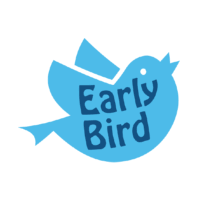Research
-

Early Bird webinar offers for 2026
In 2026 we are offering a rich programme of research-informed webinars centred on improving evidence-based practice across youth mental health, ALL WITH EARLY BIRDS!
Read more -

OCD; An update on OCD and related disorders in children and young people
Led by Professor David Mataix-Cols ; “In this session, I will provide an up-to-date overview of the latest research on OCD and related disorders, with a focus on risk factors, consequences, and evolving clinical approaches in the assessment and treatment of these disorders.”
- Event type
- Introductory and Update Session
-

Neuroanatomical Variability and Early Substance Use Initiation: Insights from the ABCD Study
Adolescence is a period of rapid brain development, making it a sensitive window for experiences that may shape long-term outcomes. A new study from the Adolescent Brain Cognitive Development (ABCD) project examined whether neuroanatomical variability is linked to early initiation of alcohol, nicotine, or cannabis. Drawing on baseline brain images taken before substance use began, the researchers found regionally specific differences in cortical thickness and surface area among early initiators. The findings highlight the complexity of adolescent neurodevelopment and point to the value of large-scale, longitudinal studies in clarifying how brain structure and behaviour unfold together.
Read more -

Clinical Academic Training in England or How to Become an Academic Child and Adolescent Psychiatrist 101
Clinical academia in the United Kingdom is facing a paradox; while training the next generation of clinical academic doctors in the UK is becoming more competitive and restrictive, with many candidates disputing one position, on the other hand, the overall number of clinical academics is diminishing. So, amid increasing competition, why and how to pursue a clinical academic career in child and adolescent psychiatry?
Read more -

Honouring Excellence in Peer Review – Peer Review Week 2025
As a part of Peer Review Week 2025, to show our gratitude for the ongoing support and service of our reviewers to the journals, and the wider scientific community, we want to extend a heartfelt thank you to all peer reviewers. We are proud to present the list of Top Reviewers for the 2024 calendar year.
Read more -

Thank you to all our 2024 Reviewers
ACAMH wants to express our gratitude to every single reviewer from 2024 for their invaluable contributions to the JCPP, the CAMH journal and JCPP Advances, and the wider academic community as a whole. We are deeply appreciative of the time and effort required to provide detailed, thoughtful reviews. Reviews serve a vital function in the production of fascinating papers and exciting progress in the field of child and adolescent mental health.
Read more -

Children and Adolescents with Single and Multiple Traumas Response to PTSD Therapy: New Insights from a Major Meta-Analysis
A 2023 meta-analysis led by Hoppen and colleagues examined whether children and adolescents with post-traumatic stress disorder (PTSD) benefit equally from psychological interventions, regardless of whether they have experienced a single traumatic event or multiple traumas (Hoppen et al., 2023).
Read more -

Call for Early Career Researchers Reviewer Panel for ACAMH Journals
The Journal of Child Psychology & Psychiatry (JCPP), the Child and Adolescent Mental Health (CAMH) journal and JCPP Advances, published by the Association for Child and Adolescent Mental Health, are seeking early career researchers (within 10 years of being awarded their PhD) with expertise in the field of child and adolescent psychology and psychiatry to become part of our ECR Reviewer Panel.
Read more -

ARFID: What We Know About Psychological Treatments So Far
Which treatments are showing promise? How is progress measured? What can clinicians take from this? Find out in this blog.
Read more -

Supporting Families of Trans Youth: A New Toolkit Rooted in Lived Experience
A new community-based participatory study highlights the importance of family support in improving mental health outcomes for transgender and nonbinary youth. Co-created digital stories reveal how open communication, shared reflection, and inclusive family involvement can reduce isolation, foster empathy, and build stronger connections. The result is a flexible toolkit designed for both professionals and caregivers.
Read more